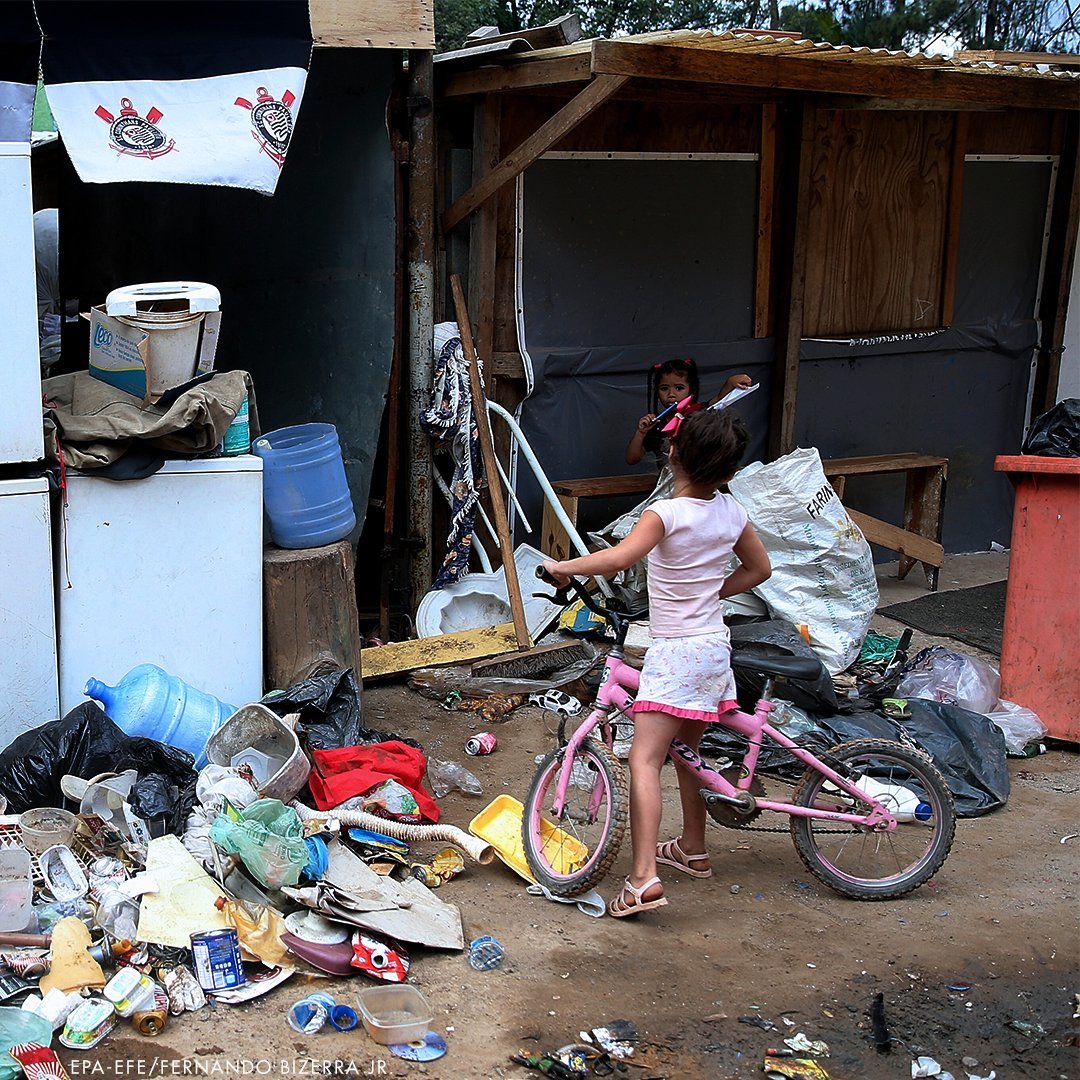PortugueseGENEVA (3 August 2018) – A group of UN human rights experts* is urging Brazil to reconsider its economic austerity programme and put the human rights of its population, who are suffering the harsh consequences, at the centre of its economic policies.“People living in poverty, and other marginalised groups, are disproportionately suffering as a result of the stringent economic measures in a country once considered as an example of progressive policies to reduce poverty and promote social inclusion,” the experts said.“Data recently made available reveals a rise in Brazilian child mortality rates for the first time in 26 years. This increase, attributed to various factors, including the Zika epidemic and the economic crisis, is cause for serious concern, especially with the budgetary restrictions for the public health system, and other social policies, which severely compromise the State’s commitment to guarantee human rights for all, especially children and women.“Some of the financial and fiscal decisions made in the last years affect the enjoyment of several rights, including to housing, food, water, sanitation, education, social security and health, and are worsening pre-existing inequalities,” the experts noted.“While the Government underlines various measures to alleviate the adverse consequences of those economic decisions, according to information we have received, those measures are largely insufficient.“Women and children living in poverty are among those hit hardest, as are Brazilians of African descent, rural populations, and people living in informal settlements,” said the experts. “We regret that efforts in relation to targeted policies addressing systemic discrimination against women have not been sustained,” they added.The experts stressed that austerity measures should never be seen as the only or first solution to economic problems, especially given their impact on the most vulnerable.“There is a common misunderstanding among governments and international financial institutions that economic crises can justify any and all cuts to essential services and to economic and social rights. But just the opposite is true.“Austerity measures should be taken only with the most careful analysis of their impact, in particular as they would affect the most disenfranchised individuals and groups. They must be considered only after a comprehensive human rights impact assessment.“Such an assessment should seriously contemplate less harmful policy alternatives, like raising taxes for the richest before even bigger burdens are put on the shoulders of the least well-off. Steps to reduce public debt and to regain not only financial but also social sustainability should also be considered,” the experts stressed.Brazil, once a champion in the fight against hunger and malnutrition, is dramatically reversing major policies on food security. In the area of housing, the landmark programme “Minha Casa Minha Vida” has suffered drastic cuts. Regarding water and sanitation, a third of the budget will be reduced according to 2018 forecasts.Given Constitutional Reform No. 95, also known as “EC do Teto”, it is expected that public spending will remain capped at this level for 20 years, leaving no hope of improvement in the near future. This fact makes it even more necessary to review economic policies with a human rights lens.“Achieving macroeconomic and growth targets cannot be at expense of human rights: the economy is society’s servant, not its master,” they concluded.The experts have engaged in a dialogue with the Government to express their concerns.ENDS(*) The UN experts: Mr. Juan Pablo Bohoslavsky (Argentina), Independent Expert on foreign debt and human rights; Mr. Léo Heller (Brazil), Special Rapporteur on the human rights to safe drinking water and sanitation; Ms Ivana Radačić (Croatia), Chair of the Working Group on the issue of discrimination against women in law and in practice, Ms Hilal Elver (Turkey), Special Rapporteur on the right to food, Ms Leilani Farha (Canada), Special Rapporteur on the right to adequate housing, Mr. Dainius Pūras (Lithuania), Special Rapporteur on the right to physical and mental health; Ms Koumbou Boly Barry (Burkina Fasso), Special Rapporteur on the right to education.The Independent Experts, Special Rapporteurs and Working Groups are part of what is known as the Special Procedures of the Human Rights Council. Special Procedures, the largest body of independent experts in the UN Human Rights system, is the general name of the Council’s independent fact-finding and monitoring mechanisms that address either specific country situations or thematic issues in all parts of the world. Special Procedures experts work on a voluntary basis; they are not UN staff and do not receive a salary for their work. They are independent from any government or organization and serve in their individual capacity.UN Human Rights, country page – Brazil
